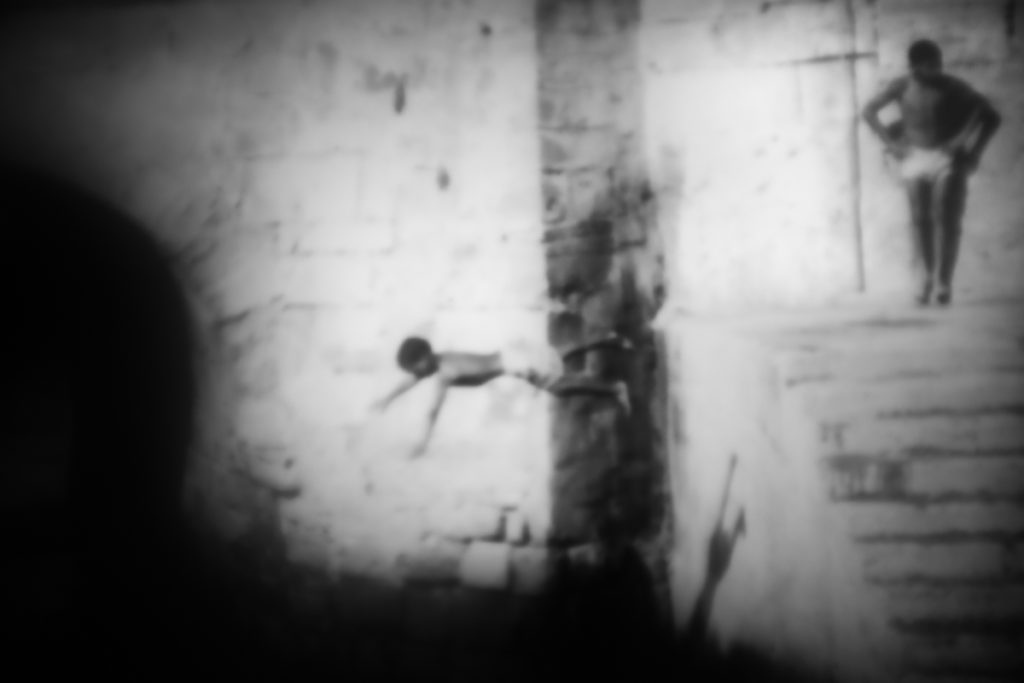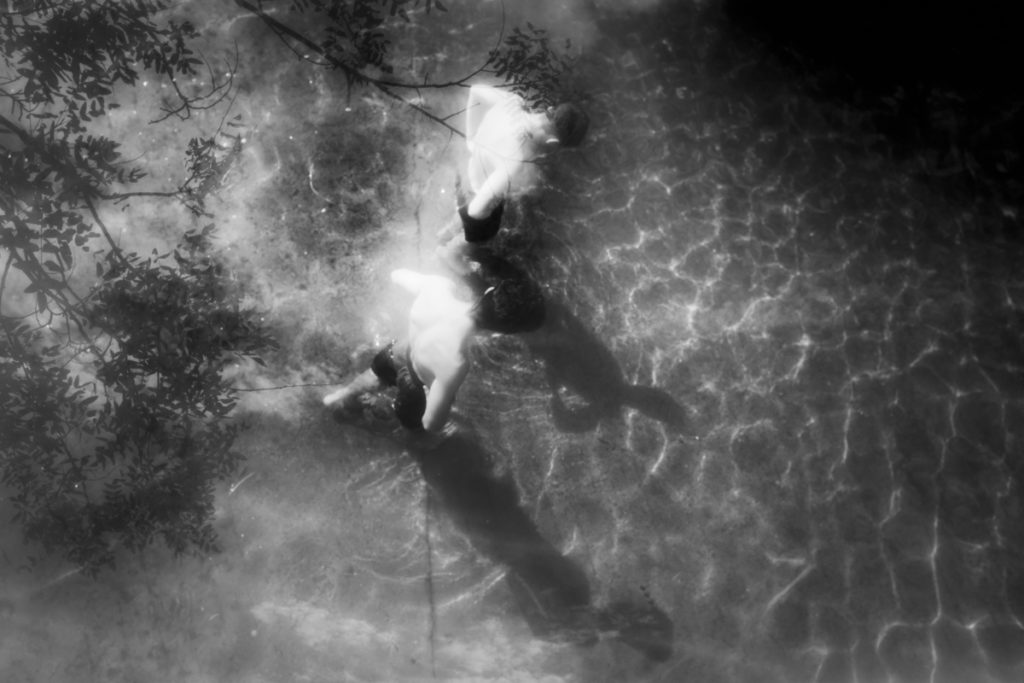
Blake Andrews: Can you tell me a bit about your journey? Where are you from? What were your early artistic influences?
Alison McCauley: I was born in the UK to British parents but spent my life moving from country to country. My dad was a hydroelectric engineer.
My earliest influences were painters: Rothko, Basquiat, Miro, Tàpies, among others. Then as I got into photography, it was Cartier-Bresson and Robert Frank to start with, probably because they were the first I came across. I do still love RF’s work just as much though.
You no longer love HCB?
I admire him, but I’m not excited by his photographs anymore. Whereas I still find Frank exciting.
You were a painter for a long while, right? I think I read that somewhere. Roughly what years in your life?
I painted since childhood but started studying visual art formally in the late 90s. I specialised in painting at Bachelors level and did a year of post grad studies in painting.
Very cool. Were you shooting photos at all during this time?
From the end of my Bachelors but mainly as research for painting. That’s how I explained it to my tutors anyway! They were very keen on consistency towards the end of the programme!
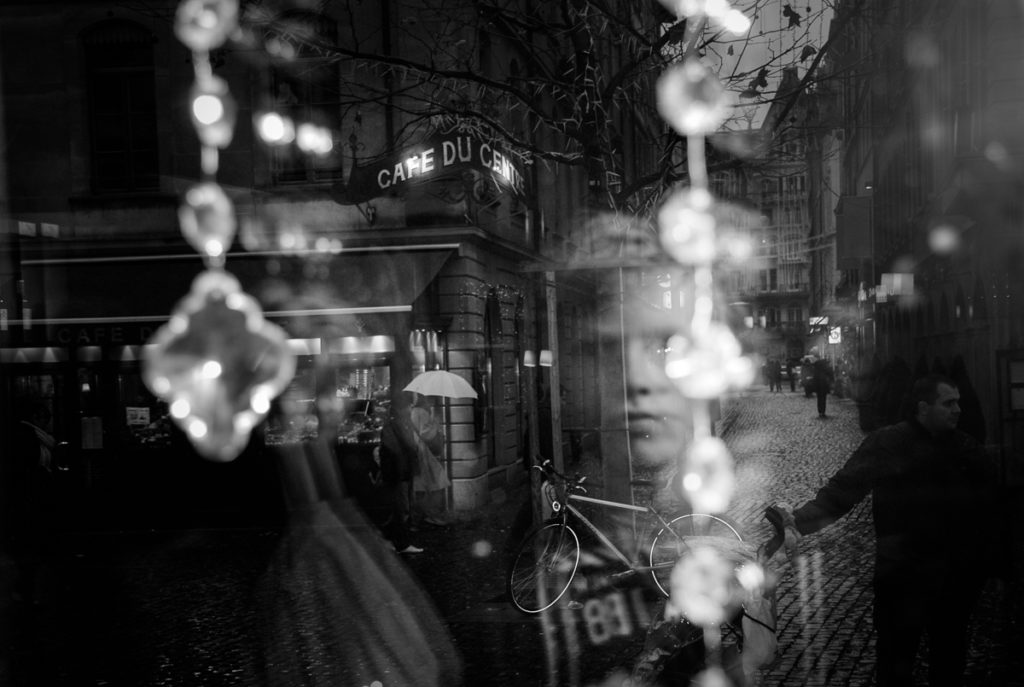
So it was a tightly structured program?
The first 18 months were very loose and experimental, actually. It was an amazing but difficult experience as some tutors would try to tear you apart so that they could then put you back together differently. At that time video was the cool thing and no one wanted us to paint. I had to fight to carry on painting. Kind of ironic as a couple of years after finishing, I became so obsessed with photography that I had no time left for painting.
Were there things you learned there that you could apply to your photography now?
Yes definitely. I learnt to think long(ish) term and to not worry about failures along the way. The most important thing I learnt was to think about why I do things. To consider my motivation and to question the process and how or if it applies to a concept. To think about art or photography as a potential expression of myself, my views, feelings, etc.
Good advice.
This has been so important to me in the long term. I have meandered and diverted and done lots of types of work that doesn’t fit with that approach but I think I’ve been working in that way for a few years now and it’s making sense to me.
So how did you find photography after art school?
I started photographing in the street, not only because it is accessible always but because I like the lack of control that comes with street photography.
Did you find painting too controlled?
Yes, but I developed this strange way of working where I would allow paint to do what it can without my control. I smudged, dripped, layered paint. The success rate was kind of low!
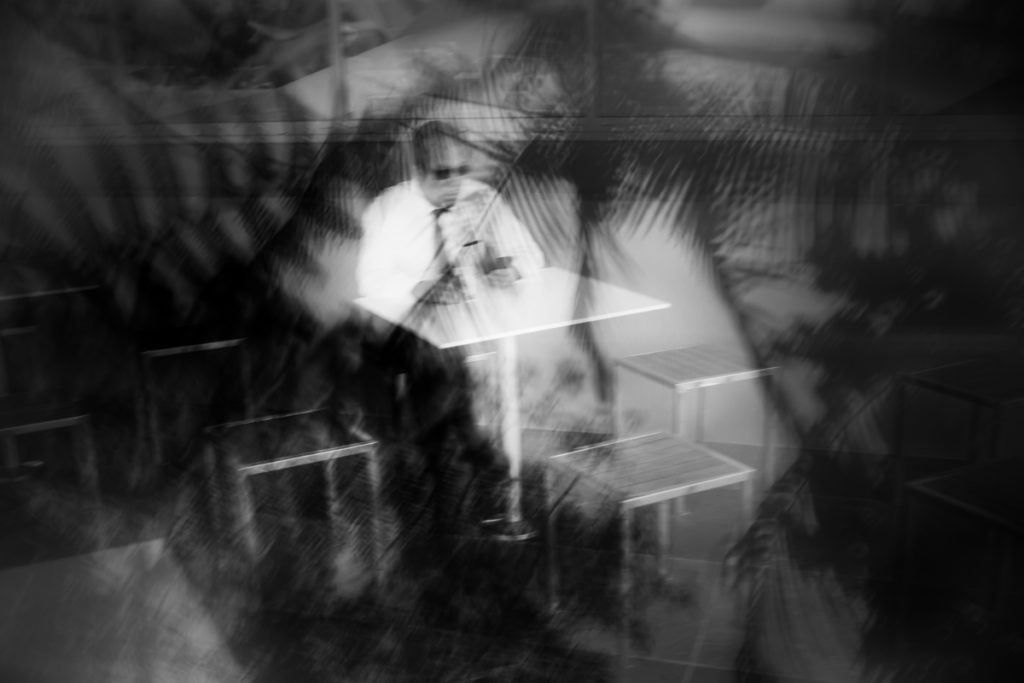
If I look at your photos over the past 5 years or so, they seem to be going in a less controlled direction. Is that a fair judgement? Or maybe I’m off.
Totally, I feel more liberated now and not worried about how or where my work fits. It took way too long, but I think I have finally found a way of combining the possibilities of painting and photography.
Like the plastic lens effects from your last zine.
Yes, I love crappy lenses and all the unpredictable things that can happen with them.
Have you ever messed with Holgas or Dianas?
I have a Holga lens and a pinhole lens that fit on my Nikon. I sold the Nikon though but I’ve been making some filters out of plastic and dirty glass.
Cool, homemade filters. I think Dirty Harrry uses something like that. Maybe he puts a plastic filter on his camera? Not totally sure.
It certainly looks like it in many of his shots. I love his work.
Photography is an odd beast. A photo can be such a literal translation. So the instinct to lose control might come naturally, to escape the box that seems inherent.
I agree.
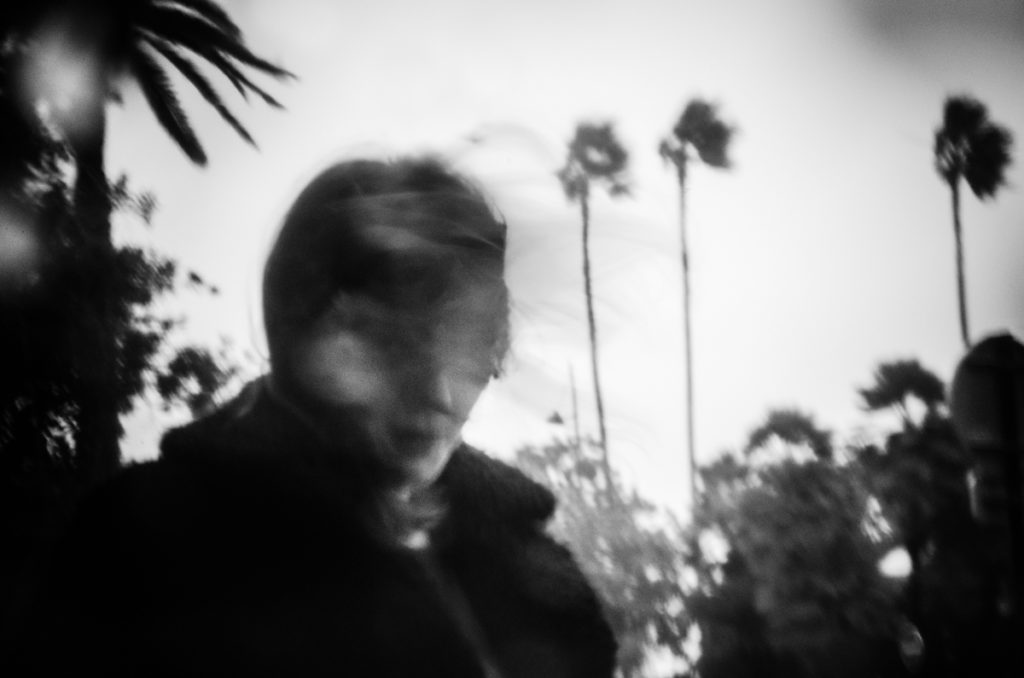
Do you ever shoot color?
Not for a while. I like color too but b&w is an extra step away from a reality. It probably sounds terrible but I’m bored with the idea of reality!
Tell me a little about your process. Where do you go? How do you find photos? What do you look for? What’s your routine?
I photograph anything and anywhere now. I photograph my family, people in the street, inanimate objects, landscapes … anything. Sometimes I don’t feel like photographing, but it rarely lasts more than a few days. My process varies depending on the subject but I like to play around with the light and the camera. I don’t grab shots as quickly as I used to when I was only shooting more “traditional” street. I look for something that looks interesting (to me, but hopefully to others too). I look for images that hopefully don’t look like something I’ve seen before.
So you’re a “carry your camera everywhere” photographer? More so than going on specific photo outings?
Yes! I like small cameras. I used to have an idea of a subject and then go and try to photograph it but I now find that doesn’t interest me In the least. I enjoy just seeing what I find and figuring it out later … or not figuring it out.
It’s similar to my method. My problem is that since everything is a potential photo op, I sometimes have difficulty separating life from photography. Maybe it’s not always healthy living each moment with a squinted eye, sizing up scenes. I dunno, what do you think?
I think that’s true. There are some people in my life (my parents, for example) who really don’t like being photographed, so I take a break when I’m with them. Also I restrain myself when I’m with newish (non-photographer) people. This way I can have a break! But I know what you mean, and I do often think that I’m looking rather than participating but the desire to photograph has led me to many interesting situations and people. So maybe it’s not too unhealthy.
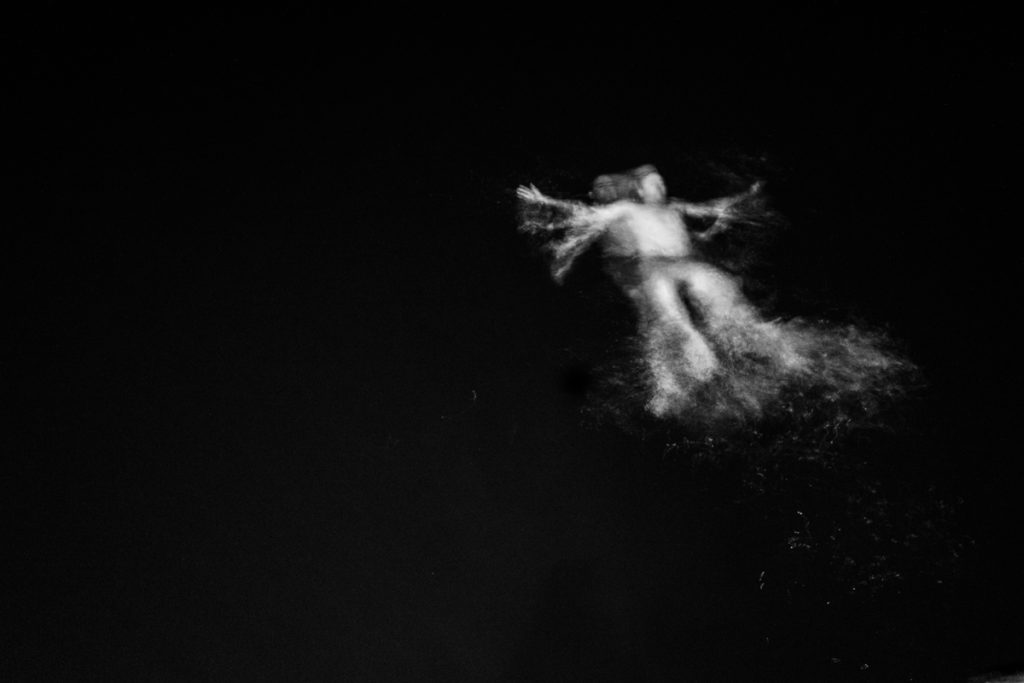
Your parents don’t want to be photographed? Bummer. What do they think of your photographs? Or about photography generally?
I’m not sure they really like my photographs. I did an autobiographical zine a couple of years ago and I included some old photos (mostly taken by my father). My mum said she loved the old photos but “what was the point of all the out of focus b&w ones?”! I think they love the fact that I’m so into and involved in photography. So it’s all good!
Yes, it’s inside baseball sometimes
Ha ha.
I’m curious how you wound up in Geneva. Photographic reasons? Or something else?
My husband’s work first took us here in 2003. We’ve left a couple of times and came back. I’ve lived longer here than anywhere else.
Our son and daughter have taken Swiss nationality.
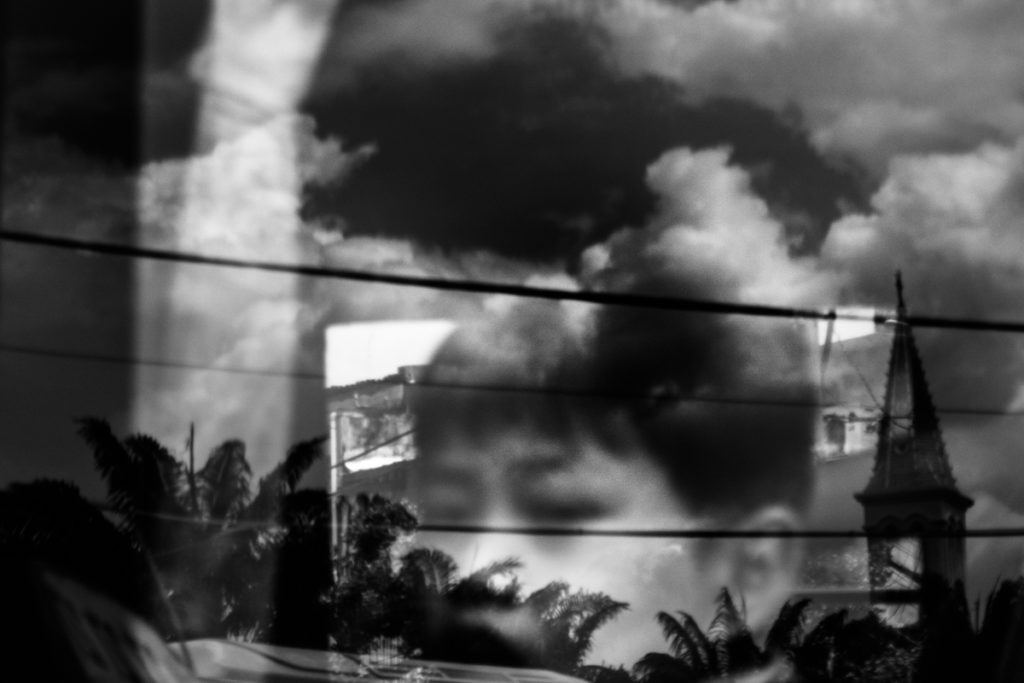
Is it a good place to shoot?
It’s improved a lot in past few years. When we were first here the streets were so quiet but it’s much more lively now. The new generation is less obsessed with discretion and privacy. I went through a few years when I really didn’t want to be here but I love the place now. I didn’t answer your question. Yes it’s quite a good place to shoot.
Maybe part of that is just settling in to the place and finding its rhythm.
Yes, that’s true. I do know Geneva well now and I’m aware of the positives and the negatives.
Since this is for UP I should probably ask about your impressions of the group. What do you think so far?
I’m so happy to be part of UP. I love the way the group has evolved recently. I’m excited about the possibilities of what we can do together. I’ve been part of other groups before but this group is so dynamic and well organised.
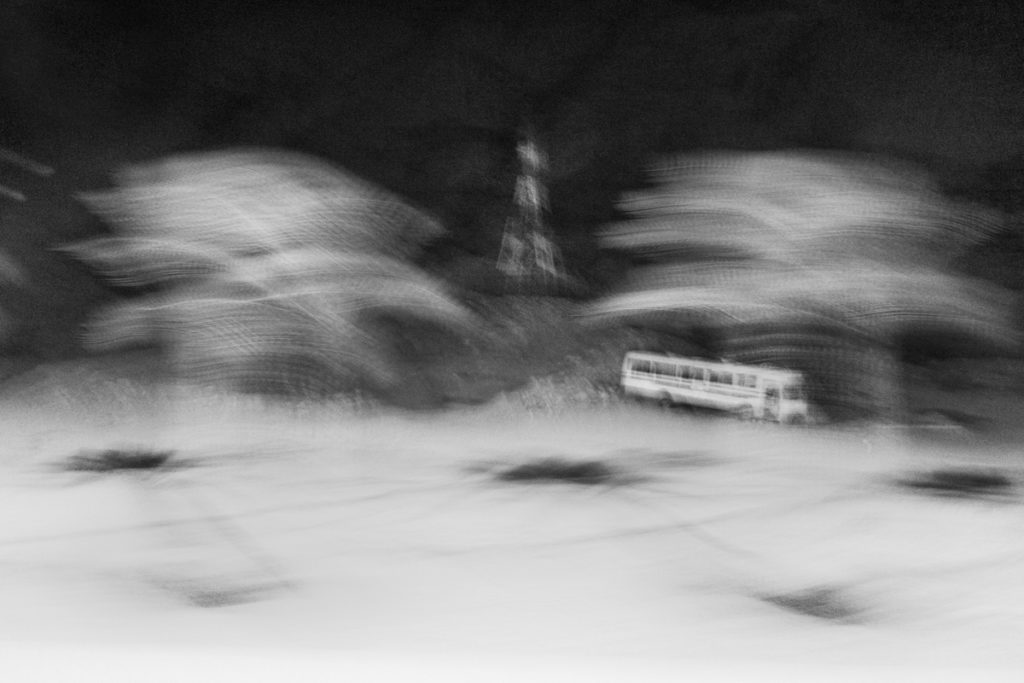
UP has traditionally come from a street photography perspective, however you define that. I think you have a bit of the same issue I do, which is that your work doesn’t fit neatly into that label. How do you think your work relates to “street” photography? And what’s your general impression of street photography?
I don’t think I fit with the group before the changes but it is much more open now. About half of my photographs could be defined as “street”, maybe more. DH helped me with my selection of submission photos and I was surprised (and delighted) when he selected images that really weren’t street. I stopped worrying at that point! I think it’s important to have a variety of different approaches and outcomes. I think your work and mine and anyone’s whose work doesn’t fit neatly into the genre enriches the group. I prefer to avoid definitions because they can be limiting but as UP is a group with a strong SP perspective, I want to be sure that much of my work continues to fit somewhat within the genre. As it’s a way of photographing that I love and that feels natural to me, I think it will always be an important part of my process.
I think something you said earlier is relevant. When you were first getting into photography, you were attracted to street shooting because it was uncontrolled, or at least offered that possibility. That’s the way I like to approach photography also, and maybe why I wound up in a street collective. Because for all of SP’s problems, it does have that essential thing that it’s open to chance and possibility, and it’s created on the fly.
Yes, it’s the way of working I’m happiest with. Agree. I think it’s more interesting than something planned or orchestrated.
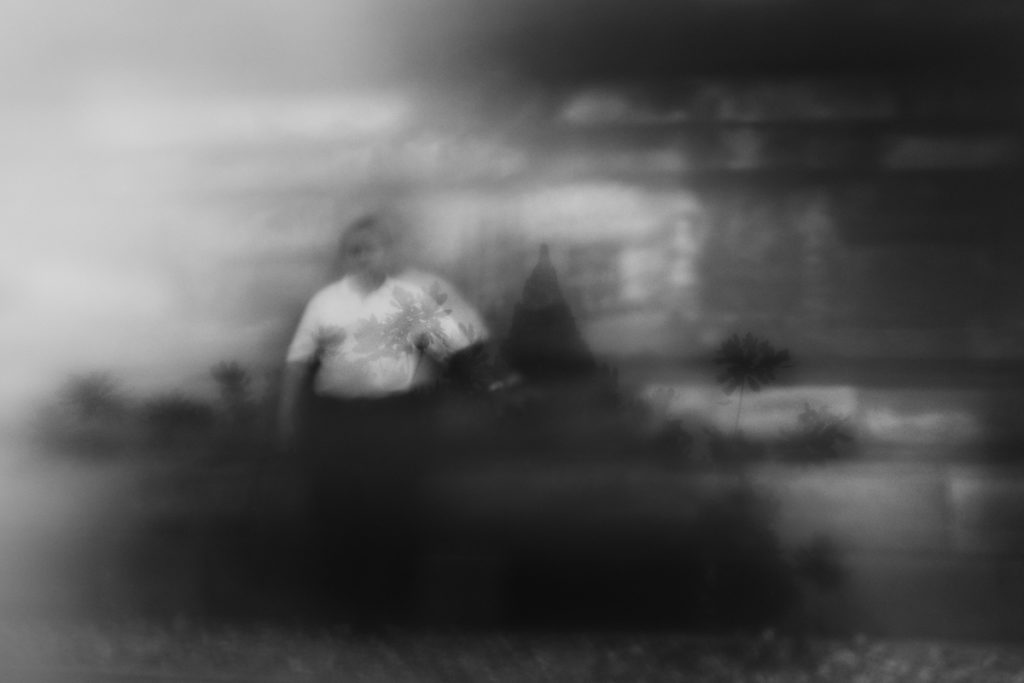
Perhaps that attraction is a reaction to a world which is increasingly scripted and mediated?
Probably. Something real.
Would anyone want to shoot street photos 3,000 years ago? Maybe not. It was more chaotic then.
Yes, too busy surviving. You’ve helped me understand something else I love about this way of photographing.
What’s that?
That it’s partly about reality. Reality with all its beautiful mess and flaws. Maybe I’m not bored with reality after all!
Well yeah, that’s why you’re not a painter anymore, right? Photography has a connection to the world. I guess painting does too. But less dependent.
A much closer connection. The isolation of painting almost drove me crazy. Too many long hours cut off from the world. Photography is much more sociable.
There’s always plein air painting.
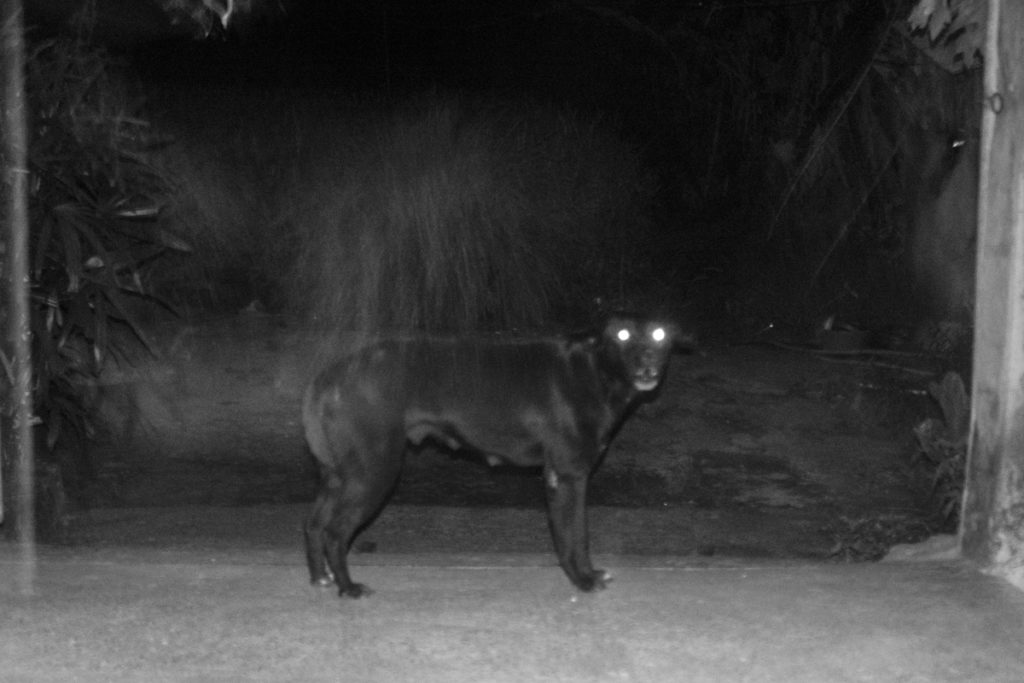
With a few curious onlookers!
It’s funny you say photography is sociable because I view it as a pretty solitary activity. I can’t make good photos in a group. And most of the other stuff editing, printing, etc. is me alone. But I guess it gets me out in the world amid other people. Even if I’m a totally alien presence.
I’m not a group photographer either. I need to concentrate and I don’t like the idea of taking the same photo as the guy next to me. I love having coffees with photographers though! Or just talking.
Well you could do that with other painters too.
In theory but I don’t remember having much fun with painters. Photographers are more fun, in my experience.
